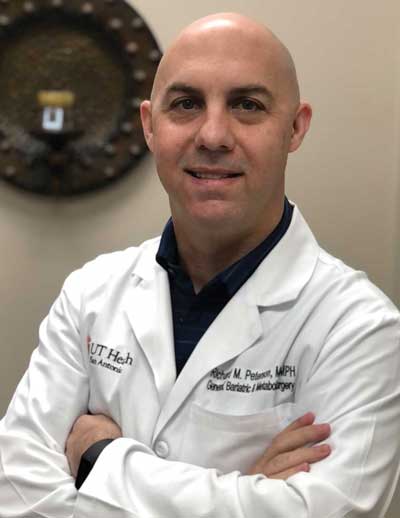Is the House on Fire?

Richard M. Peterson, MD, MPH, FACS, FASMBS, DABS-FPMBS, is the Co-clinical Editor of Bariatric Times; Professor of Surgery, UT Health San Antonio; Chief, Bariatric and Metabolic Surgery UT Health San Antonio, San Antonio, Texas
Dear Colleagues,
With this month’s editorial, I felt like I should use this space and time to talk about burnout and emotional fatigue. This comes on the heels of having been recently informed of the loss of a close colleague. As I was preparing this editorial, I waited to put it together until serendipitously, one of my good friends and a past president of the Texas Association of Bariatric Surgery (TABS), Dr. Robert Carpenter, came to our institution and gave a Grand Rounds on this exact topic.
This is a topic that we all deal with every day. The positive outcomes we see in our patients and the impact on their lives carries us through for the most part. But when we are faced with adversities, such as bad outcomes in our patients, sentinel events, difficult disclosures, medical claims, board claims, or even the constant fight against payors to be able to provide the right treatment for our patients, and are met with barrier after barrier, it can take its toll on us.
In the world of bariatric and metabolic surgery, the system is always under a significant amount of stress. Most of us are good at compartmentalizing what we are feeling, but there is a limit to that. Surgeons in particular are good at “turning the switch off,” which dehumanizes a patient for a short time to “do the job,” and turning that switch back on once they are off the table. As Dr. Carpenter covered in his Grand Rounds, dehumanizing has a role in the patient care, because it can help offset the emotional toll of hurting another human to make them better. The real problem comes when the switch gets stuck.
That emotional fatigue has many effects on healthcare providers, including feelings of helplessness and guilt, increasing stress related to the job, increased risk for another event, leaving the practice of medicine and effects on everyday life, including higher risk of divorce, depression, and suicide. Manifestations in the individual can include insomnia or other sleeping problems, anxiety, isolation and disconnection, substance abuse, changes in appetite, irritability and depression, and increased cynicism, negativity, and apathy.
What we all need to understand is that we are not alone. At some time, most everyone will have experienced this to some degree. Being able to reach out to a colleague shouldn’t be that hard, although for so many, it is. Why do we fail to seek help, either professionally or from a colleague? Much of that is related to embarrassment, concern for professional retribution, and being thought of as “sick or unwell” or even somehow weak. Asking for help isn’t a failure on your part, but in fact it is a triumph of judgment.
Even on the days I’ve felt bad and was dealing with what I now realize was burnout or emotional fatigue, I know that being able to talk it out with my practice partners and finding myself surrounded by colleagues at our meetings, my spirits have always been lifted. It is a reaffirmation that I am not alone. Those are the things that have kept my switch from being stuck in the off position. With that having been said, I am eagerly anticipating seeing you all in San Antonio this month at this year’s American Society for Metabolic and Bariatric Surgery (ASMBS) Weekend. Even a passing smile should serve as a way to recharge each other’s emotional batteries. I’ll see you all soon!
Sincerely,
Rich Peterson, MD, MPH, FACS, FASMBS, DABS-FPMBS
Category: Editorial Message, Past Articles




